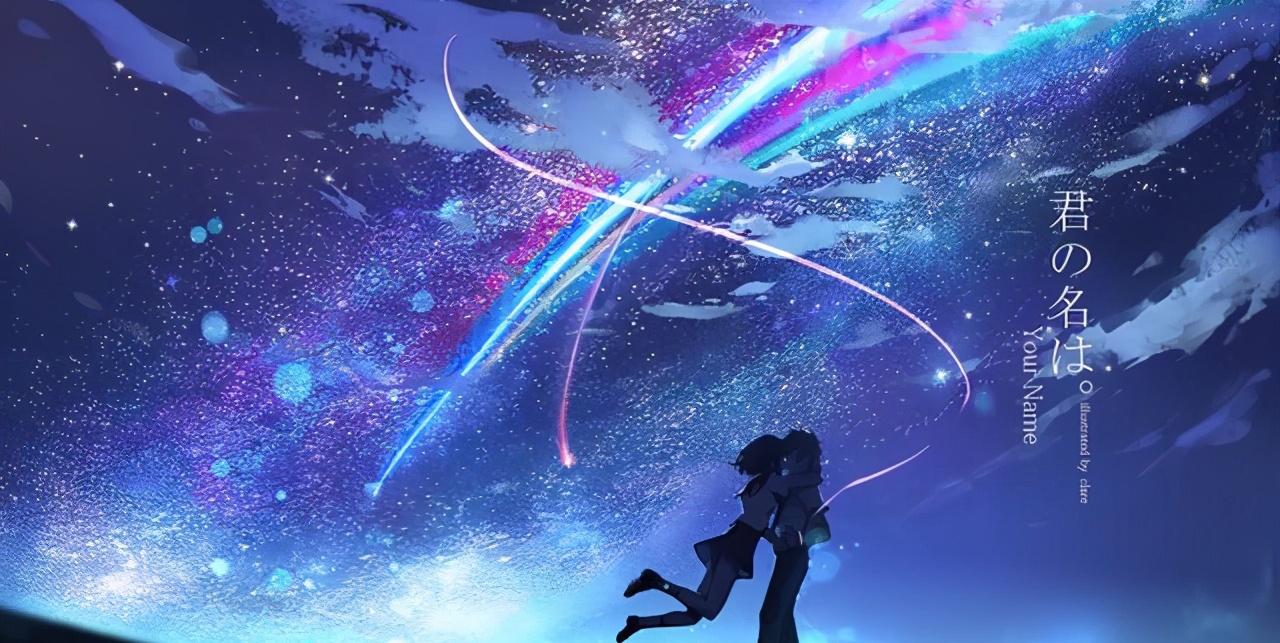Why do we like Japanese youth pure love works? I thought about this question for a long time, until I missed my youth at the age of 30, I wanted to understand that we like youth literature and pure love movies, maybe, probably, probably because we are eager to find some spiritual comfort in these healing, beautiful stories, even if these youth works are tragic endings, they are enough to carve a mark in our hearts and endure.

Because you will find that every movie you watch, every literary work you have read, has a wisp of plot similar to your own youth, whether it is healing or pain, it can arouse the softest part of your heart. I remember that In 1993, Miyazaki made a youthful and pure love anime movie "Hearing the Sound of the Waves", which hit the softest part of my heart, and there was a line in the story that I always wrote in my handbook: "Open the window, the Tosa Bay in the night is in front of me, I close my eyes, and the familiar sound of the waves rings in my ears." ", like a beautiful summer evening, blowing the sea breeze, recalling a crush like the tide of the sea in my youth, fresh and idyllic, tepid, but so beautiful and gentle.
This kind of beautiful feeling, just like I am now reading Yukio Mishima's "Shio Saul", the warm sea breeze blows a slightly sticky feeling, in the twilight of the seashore, the ear is the sound of the waves, in front of the eyes is a bright girl, I always think that the beginning of a story like "Shio Saul", according to the custom, will be a tragic ending, a fishing teenager, and a rich man's family, how to see is not seen "around" the CP. I didn't want Yukio Mishima not to disappoint me and give me a beautiful and touching ending.
Shinji, an 18-year-old teenager, met Hatsue on the beach on a spring evening. Hatsue's complexion and calm eyebrows make Shinji's heart move; Shinji Akagi's pure eyes also make Hatsue unforgettable. On such a spring evening, the two began to slowly move closer from two straight lines without intersection, until they knew each other and fell in love, and became more and more fierce with the passage of time, but they did not go out of the moral bottom line of love because of deep affection, and when the two were naked and faced on the beach, they only kissed instead of eating the forbidden fruit. Both of them strongly smelled each other's body odor like the tide of the sea, and both felt each other's body temperature. The chapped lips touch each other, somewhat salty, and Shinji feels like seaweed. ”
The simple love between the two is not smooth sailing, because of the difference between the door, Hatsue's pursuit of the child of another rich man's family, thinking that he and Hatsue are "door to door", obstructing Shinji and Hatsue from being together, and Hatsue's father, also because Shinji is a poor boy, does not agree with the two people, but even if their love is obstructed and banned, they still insist on maintaining their feelings, and Shinji also through his own efforts and firmness, let Hatsue's father approve of him, and the two can finally walk together. Become a blessed couple on Song Island. On the upper ramp where the young man went to the lighthouse, the rain formed a rapid that washed over his feet. The pine treetops are whispering. It was difficult to walk in his boots, he did not carry an umbrella, and the rain flowed down his head into his collar. But he continued to climb against the storm. ”
When the sea breeze of Song Island blows again, when the night falls again, when the spring ends and when the summer comes, it is when love is quietly sprouting, there is no life and death in this story, there is no dog blood polyamorous relationship, only the efforts of the two people to be firm in love, only the "constant temperature" love and the two people who are blessed by family and friends. When reading a book, you will think about whether you have ever fought for love, whether successful or not, the memory of love and redoubling your efforts will always be an indispensable part of your memory, whenever night comes, you may also think of the same immature but fearless self, which is probably the ideal love that Mishima "Tide" brings to us